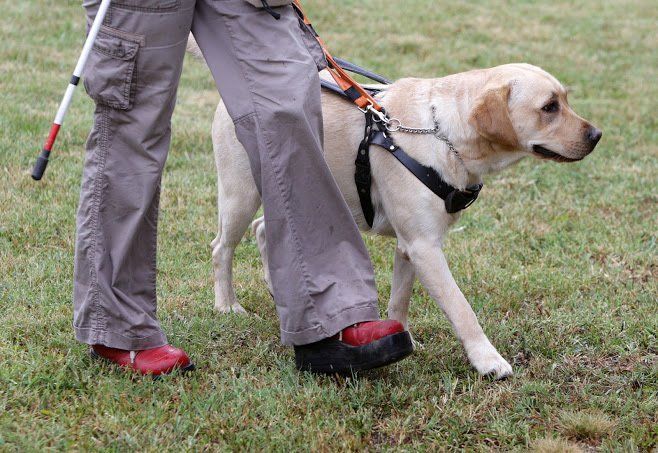3 Reasons Why Your Long-Term Disability Claim Might Be Denied
- By Admin
- •
- 03 Apr, 2019
- •

Suffering a long-term disability is obviously traumatizing. But it can be almost as demoralizing to receive a rejection letter stating that your long-term disability claim is being denied. After you’ve lost this form of recourse, now what?
The first thing you should know is that this initial rejection is not the end of the line. You can probably go through an appeals process or attempt further legal action. But if you want to come out on top in the end, you'll have to understand the reasons why your first claim was rejected and do what you can to correct the problem.
Here are some of the most common reasons why your claim could be denied and what you should do about it.
Your Medical Evidence Is Not Convincing
Medical paperwork and documentation is the backbone of any successful long-term disability claim. If your evidence isn’t convincing or complete, your claim is not going to have a chance.
First, you need to make sure your medical records are complete. If the insurer has incomplete records that don’t show the extent of your medical history or problems, this could lead to a rejection. Make sure you send in the documents yourself to avoid having something fall through the cracks.
Does your claim also include a doctor's statement? If not, have your physician write a letter on their own stationery explaining your condition in detail.
Finally, make sure you show that your condition is ongoing and requires regular medical treatment. Some people send in evidence of the initial injury that led to the disability, but they don't make it clear that medical treatment will continue for a long time to come.
You Were Caught Doing Something You Aren't Supposed to Do
In some cases, insurance companies might send out private investigators to document the person making the claim. If the policy holder is not supposed to bend over or be able to run, but the investigator has video evidence or photographs of you doing so, this could lead to a denial.
When filing a disability claim, make sure you follow all doctor instructions and don't push yourself to do something that could put your claim at risk. However, if you are denied because of photographic or video evidence, you still might be able to win on appeal.
Some disabilities cause pain that comes and goes, meaning you will have days when you can do more and days when you are bedridden. If you were photographed doing something on a good day that you can’t always do, make sure your doctor makes the nature of your disability clear to the insurance company.
You Made a Paperwork Error
Long-term disability claim forms can be confusing to fill out. The paperwork will likely include lots of complex questions, and you may need to meet strict requirements or deadlines. Make one mistake, and the insurance company may throw out the entire claim.
If your claim was denied due to a paperwork technicality, you will need to make sure you use more care during the appeals process. Work with a professional experienced with these matters to ensure that your paperwork is correct, which will give you the best chance of succeeding in your appeal.
Regardless of the reason why your initial claim was denied, you need to make sure you do everything right if you are going to win your appeal. Having a seasoned lawyer review your medical records and other paperwork before filing your appeal could be the difference between success and failure. Scott Shaffman Attorney at Law has years of experience helping clients just like you. Contact Scott Shaffman today for more information.

The language in a disability policy can vary from one insurance company to the next. This can make it difficult to determine exactly what your disability benefits are when you have sustained a serious injury.
Two common areas of confusion in long-term disability policies are the definitions of occupation and job duties. Legal arguments in long-term disability claims often center on the definitions of occupation and job duties, so you need to be able to understand the language in your policy if you want to know your rights.
Own-Occupation vs. Any-Occupation
When it comes to defining a disability, most policies will provide benefits for either an own-occupation disability or an any-occupation disability. If your disability policy can be classified as an own-occupation policy, you will be able to obtain benefits if you sustain an injury that prevents you from performing the duties associated with your current occupation.
This means that even if you are able to obtain a position in another occupation, you can still apply for disability benefits because of your inability to continue to work in your chosen field.
Many long-term disability policies are categorized as any-occupation policies. If the language in your policy refers to any-occupation coverage, you will only be able to access benefits if you are unable to work in any capacity.
You may need to work with your attorney to have the court qualify your policy to require the insurer to provide you with benefits if your injuries prevent you from obtaining a job for which you have sufficient education, training, or experience.
The level of disability required to obtain benefits differs between an own-occupation and an any-occupation policy, so you should know which type of language is used in your policy before you file a claim.
Material Duties vs. Substantial Duties
Long-term disability insurance policies will often state that benefits can only be obtained when a claimant is unable to fulfill the material and substantial duties of their occupation. Though it sounds like these duties are lumped together, many insurance companies evaluate them on an individual basis.
Material duties are categorized as those tasks that must be done as part of an occupation. In other words, if you couldn’t complete the material duties of your job, it would be impossible to do your job the right way.
Substantial duties are important to job performance but don't encompass the entire job description. For example, if you were a sales representative who had a stroke and lost the ability to speak, you would be unable to perform the substantial duties of your job. You may still be able to interact with clients via email, however, so not all aspects of your occupation would be impossible.
There is a lot of overlap between material and substantial duties. Your attorney should be able to establish the specific duties that you fulfill at work each day if you file a disability claim. Showing how your workday differs from a watered-down and generalized job description will help you prove your claim more effectively.
The outcome of a disability claim depends, in large part, on the specific language used in the claimant's insurance policy. Occupation descriptions, essential job duties, and what defines a disability can vary from one policy to the next.
An attorney can help you better understand whether your policy uses own-occupation or any-occupation language, and whether or not your disability limits your ability to complete material duties, substantial duties, or both.
Contact Scott E. Shaffman, Attorney At Law to schedule a free consultation so you can learn more about the specifics of your long-term disability policy.









